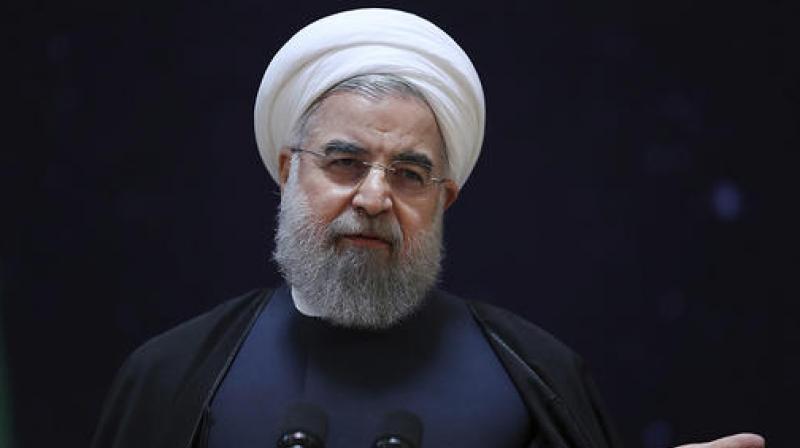Iran's Rouhani names female VPs as reformists slam all-male ministers
There was small comfort in the appointment of two women as vice presidents, who do not require parliamentary approval.

Tehran: Iranian President Hassan Rouhani appointed two female vice presidents on Wednesday but continued to take flak from reformists for nominating no women ministers.
The appointments came a day after the moderate president announced his all-male list of ministers to parliament, seen as a betrayal by reformists who backed his re-election campaign in May. "It is incredible and shocking that the president has ignored the demands of women in nominating his government," Parvaneh Salahshouri, head of a parliamentary women's group, told lawmakers.
A letter calling for female ministers to be appointed was signed by 157 of the 290 MPs. There was small comfort in the appointment of two women as vice presidents, who do not require parliamentary approval.
Massoumeh Ebtekar, known internationally for her role as spokesperson during the 1980 US embassy hostage crisis, was named as vice president in charge of women's affairs, having previously run the environment brief in Rouhani's office.
Laya Joneydi was appointed as the vice president for legal affairs, while another woman, Shahindokht Mowlaverdi, was named as a special adviser for citizens' rights.
Rouhani, a moderate cleric who had three female vice presidents during his previous term, has several more deputy positions to fill and it was unclear if any would go to women.
In an interview with AFP, the head of the newly formed Reformist Women's Party, Zahra Shojaei, said she was unsurprised by the lack of female ministers given the continued opposition of many lawmakers and powerful religious figures behind the scenes.
A large independent faction of MPs "are still not in favour of female ministers," said Shojaei. But she said female vice presidents actually have more power than ministers and have already broken the taboo on putting women in positions of authority.
"We have gone past the symbolic stage. Female ministers are important but it's not our only demand. Even if Rouhani had appointed several women ministers, it would not have solved women's issues," she said.
She highlighted a number of legal issues including the need to gain permission from a male relative to leave the country, lower levels of legal compensation and "blood money" for women, and discriminatory inheritance laws as areas that needed action.
"Rouhani has worked on policies of empowerment for women over the past four years, and we want that to continue, as well as amending laws in parliament," she said.
The continued fraught issue of gender in Iranian politics was highlighted over the weekend, when EU foreign policy chief Federica Mogherini led an all-female team for talks with an all-male Iranian contingent led by Foreign Minister Mohammad Javad Zarif.
The image from that meeting was "heavy with significance," Mohammad Reza Aref, head of the reformist faction in parliament, wrote on social media.
Rouhani sailed to victory in May over hardliner Ebrahim Raisi with the backing of reformists after vowing to improve civil liberties and rebuild ties with the West.
Some reformists have argued this week that Rouhani is failing to repay their confidence in him. "We expected at least one woman among Rouhani's nominations," said Aref.

